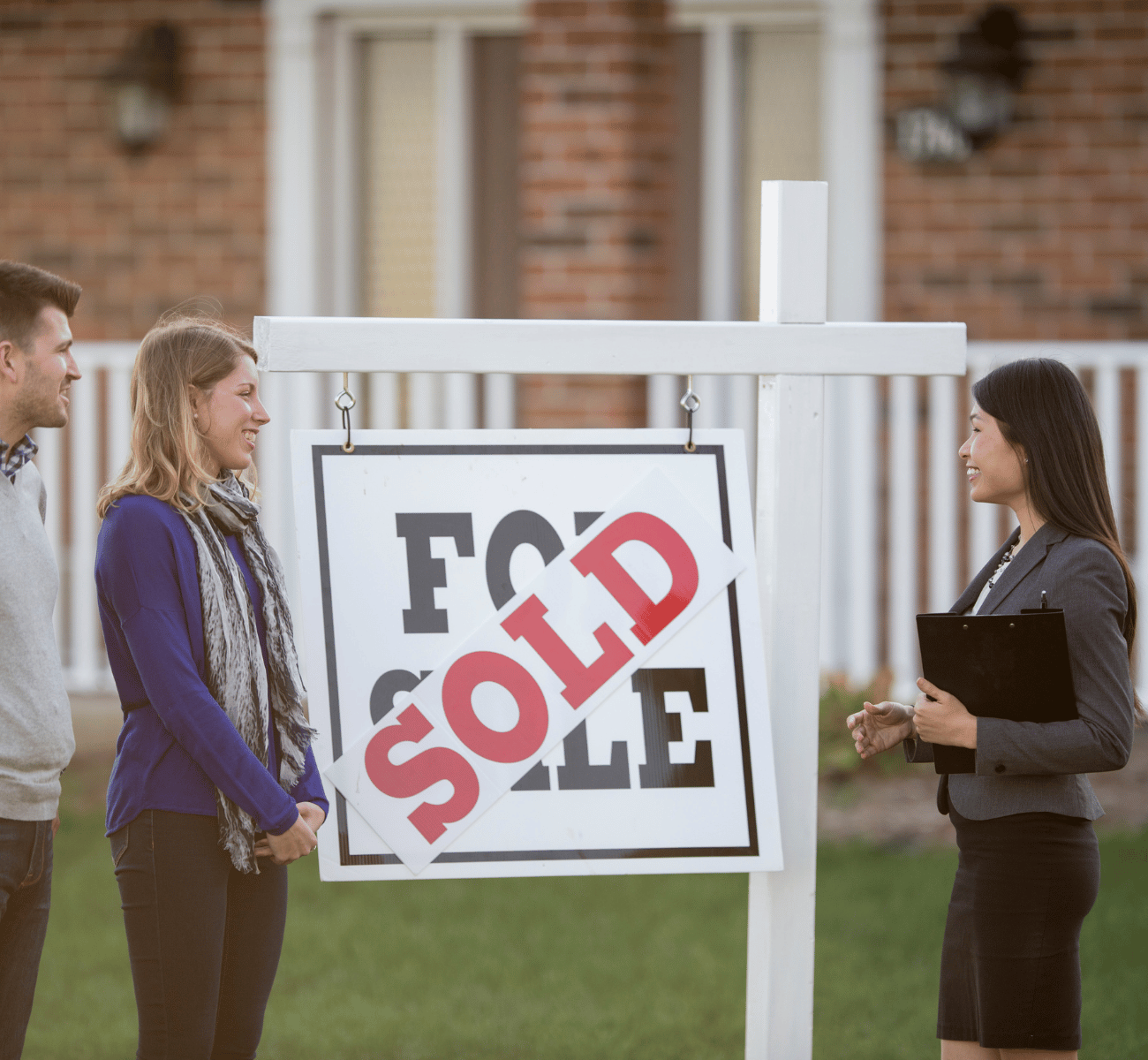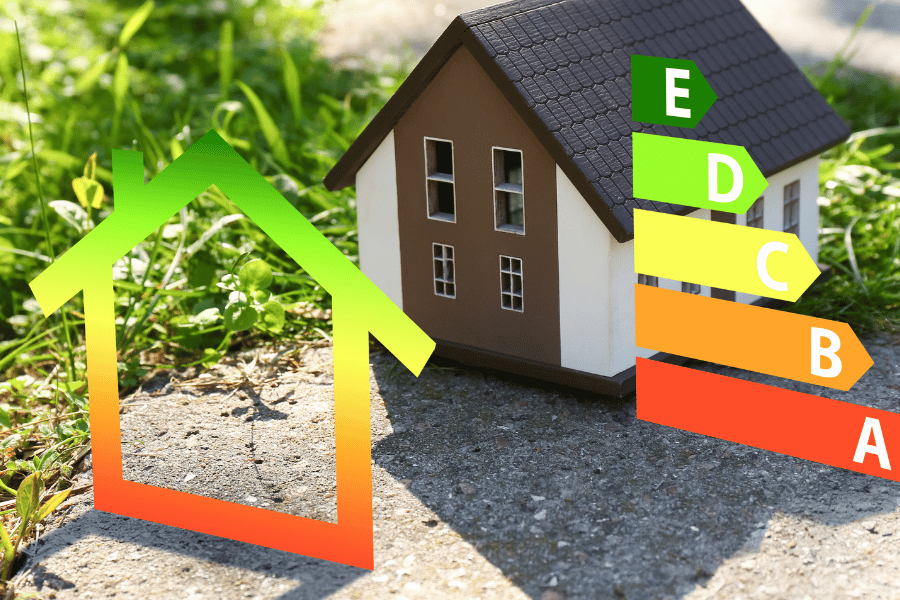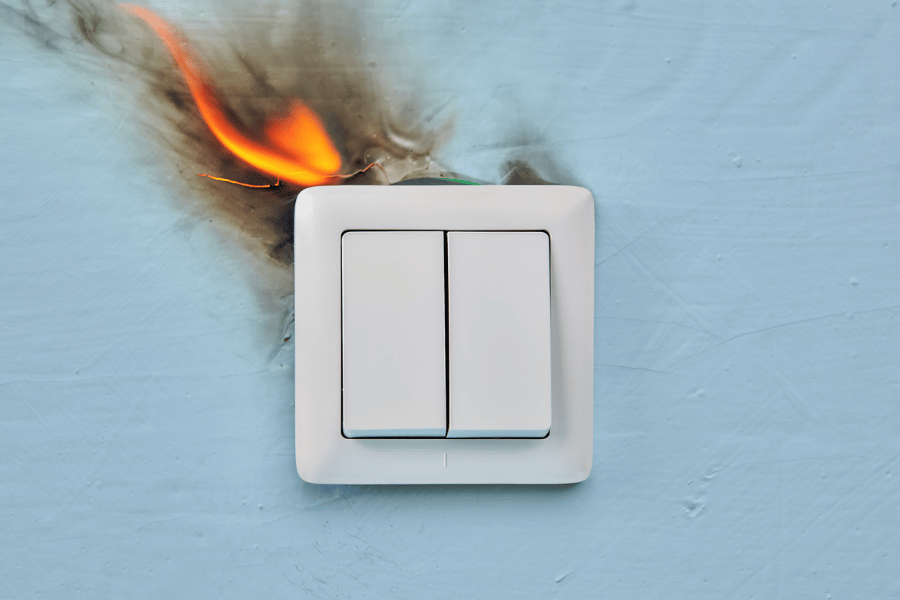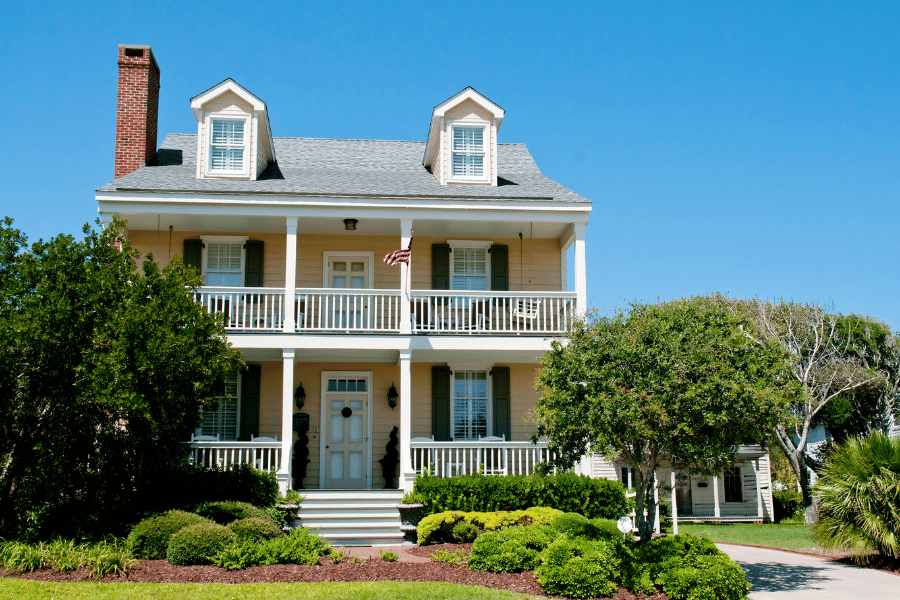Home Safety Checklist: 7 Tips To Keep Your Home Safe
July 27th, 2024

Tips To Keep Your Home Safe
Are you wondering what you can do to make sure your home is safe? Here are seven tips on ways you can improve the safety of your home.
Owning a home comes with many responsibilities. Health and safety are some of the top concerns of most Americans who own a home or are looking to purchase a home. Luckily, North Carolina is full of safe cities with low crime rates, community engagement, and access to quality education and employment opportunities.
While living in a safe area should be a top priority when deciding where to live in Raleigh, it is equally important to take precautions in your home. Home safety is more than keeping intruders out; it is protection against Mother Nature, home fires, floods, and more.
Whether you live in an older home, an apartment complex, a gated community, or any other type of home, home safety should be one of the most important things to consider. It's easy to get caught up in decorating and planning for your next home, but don't forget about keeping you and your family safe.
Not only should you be prepared for natural disasters and man-made hazards, but it is vital to prepare for everyday injuries that can happen at home. Preparing for the unexpected can seem overwhelming, but everything will be perfect as long as you follow these home safety tips.
Here are some of the best ways you can improve the safety of your home.
Chapters
1. Build a First Aid Kit
A first aid kit is essential in any building, and you never know when you may need it, so it is important to be prepared. The American Red Cross suggests that a first-aid kit for a family of four should include these items:
- Two 5 x 9 inches absorbent compress dressings
- 25 assorted-size adhesive bandages
- A 10-yard x 1-inch roll of adhesive cloth tape
- Five antibiotic ointment packets
- Five individual antiseptic wipe packets
- Two packets of 81-milligram aspirin
- An emergency blanket
- A breathing barrier with a one-way valve
- An instant cold compress
- Two pairs of large-sized, non-latex gloves
- Two hydrocortisone ointment packets
- One 3-inch gauze roll bandage
- A 4-inch-wide roller bandage
- Five 3 x 3-inch sterile gauze pads
- A thermometer
- Two triangular bandages
- Tweezers
Don't let this list intimidate you; a simple first-aid kit will be more than helpful. You don't need to be a medical professional either, but it is best to be prepared in case of a natural disaster, and you cannot call 911.
You can also keep your home safe by building a disaster supplies kit. Owning a first aid and disaster kit will be extremely helpful, regardless of whether it is a minor or major injury.
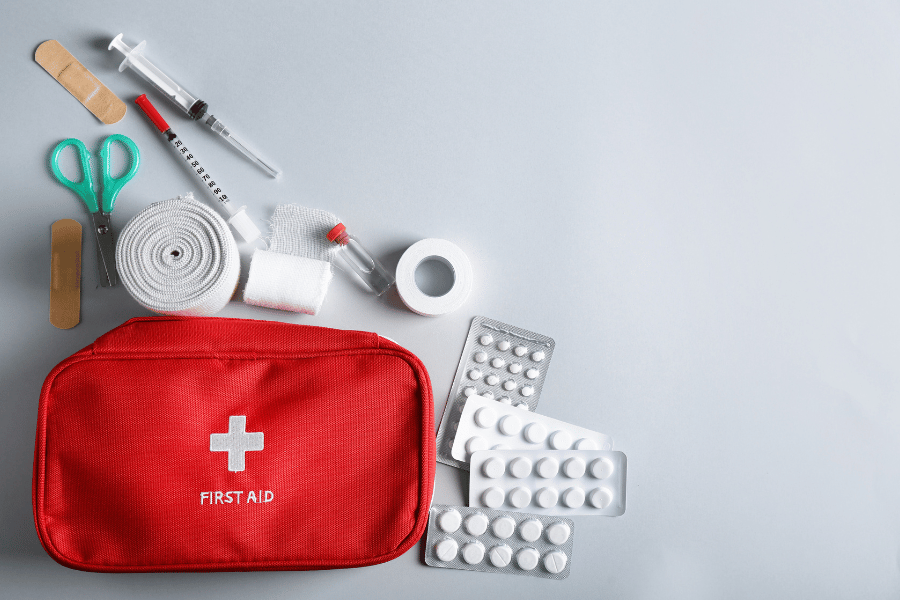
2. Throughout the Home
Starting with safety, you will want to be sure you have updated smoke and carbon monoxide detectors throughout the home, especially in the bedrooms. The low-battery alarms in your home's fire and carbon detectors are annoying for a reason: you need to change them when the battery runs low.
Be sure that you have installed new batteries. As a rule of thumb, batteries should be changed every six months. It is good to have extra batteries on hand in case of emergency. Be sure to have at least one fire extinguisher and one fire blanket in case of emergency fire, and keep them in an accessible place.
Keep living areas clear of clutter, and be sure that electrical wires are secured to the wall if they are plugged into a wall outlet. Remember that you cannot heat your home with your stove, oven, or grill, which can give off carbon monoxide—a deadly gas that you cannot see.
If you just bought your home, the home inspection should look for problems with the fire and carbon monoxide alarms. This is one of the biggest home inspection issues. You must ensure that these are working before you move in.
3. Kitchen
We want to reiterate that you should never resort to heating your home with your oven or stove. This can be a dangerous practice that can cause harmful, if not fatal, results.
Always use a range hood fan when cooking in the kitchen. Be sure the vent exhaust is circulating to the exterior of the home.
Be sure to put away all food and keep dry pantry items properly sealed. Keep your garbage and trash covered, and remove kitchen waste at least once a day.
Ensure that the oven and stovetop are clear of spilled grease or oils. If these spills occur, be sure to clean it up to avoid any risk of a kitchen fire.
Whether you are an experienced cook or not, never leave the kitchen while cooking. You should stay in the room while frying, grilling, boiling, or broiling food. This is especially important to keep your children safe; you don't want them accidentally touching a hot item in the kitchen.
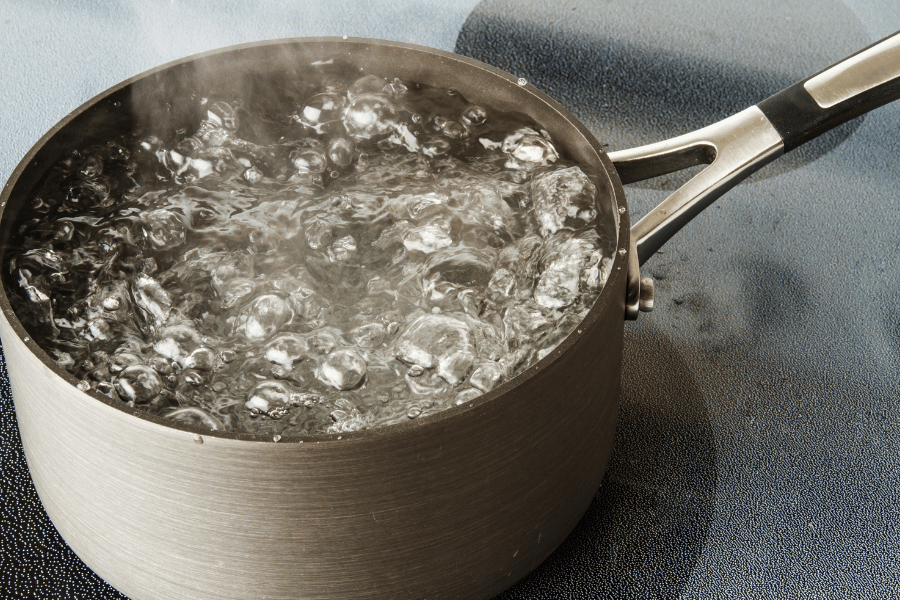
4. Specific to Bedrooms
Safety is probably a top concern when it comes to your children's rooms, but you should still take precautions in your own bedroom. Install emergency releases outside your bathroom and bedroom doors.
Use a crib that meets the current standards and has a firm, tight-fitting mattress. This will ensure your kids don't slip between the crack and the crib side. Never put blankets, pillows, or extra stuffed animals in the crib to avoid suffocation. In addition, you should not sleep with your children in your bed. Unfortunately, this puts them at risk of suffocation or strangulation.
If you have large toy chests around the house, make sure they are non-locking and have supportive lids to prevent them from slamming closed.
5. Specific to Bathrooms
Bathrooms can be extremely dangerous for a number of reasons. Most know how to unplug curling irons, hair dryers, and electric razors when they are not being used, but there are many other hazards to be aware of.
You can cover or remove locks so children cannot lock themselves in the bathroom. Also, to prevent scalding, set your water heater to a specific temperature no higher than 124 degrees Fahrenheit.
If you have small children, then lock up any bottles of mouthwash, perfume, hair spray, or nail polish. You don't want them accidentally drinking any of these. Additionally, put away scissors, razor blades, or sharp tools.
During the home inspection, verify that outlets have grounded circuit breakers.
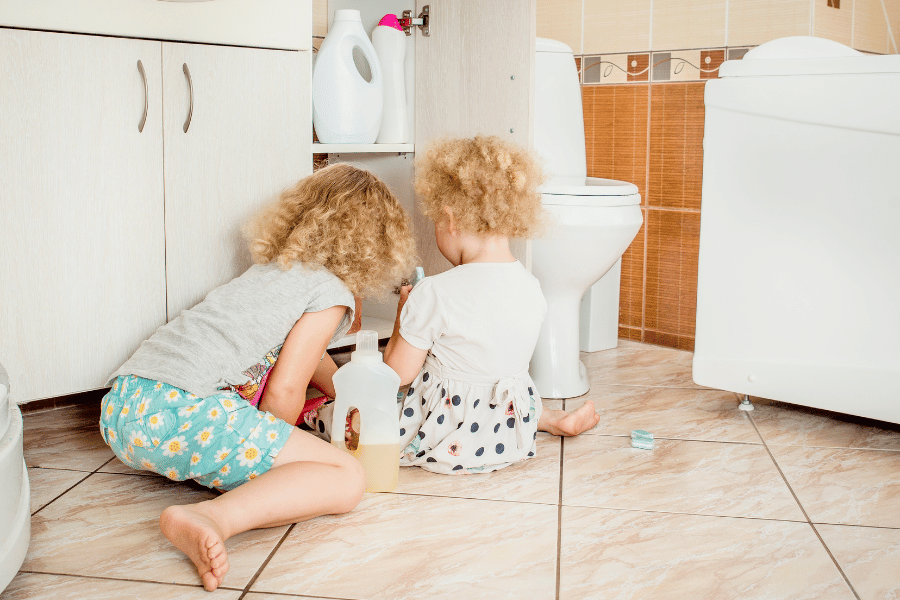
6. Prevent Intruders
There are many ways in which to protect against intruders. In the home, lock your windows, hide all your valuables, and regularly check doors and windows.
Of course, you should lock the doors and windows at night or when you aren't home, but you should also keep them locked during the day when you are in the house.
Light or illumination can be used to achieve practical or aesthetic effects to prevent intruders. Deliberate lighting can prevent intruders from trying to enter your home because they know you are home. You can also install motion-activated lighting outside of your home to deter intruders.
Home security systems are the best way to monitor and respond to home security breaches. You should compare the best security systems by researching and talking with other homeowners.
Joining your homeowner's association is a great way to learn about potential dangers in the area and how to prepare. Our last word of advice to prevent intruders is to avoid oversharing vacation plans online.
Unfortunately, there are people out there who are looking for people to be out of town. We live in a day and age of social media. However, do not share your travel schedule online with random people. Broadcasting your plans can attract people to your home while you are away. You should also share this with your children to ensure their safety.
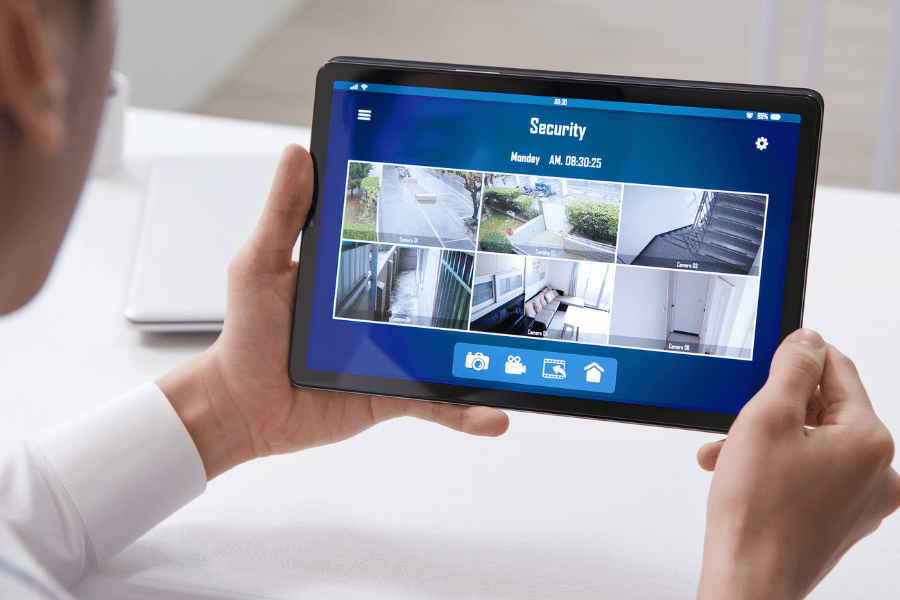
7. Stay Prepared
We all know that there is only so much you can do to prepare for a disaster. We know it can be nerve-racking leaving your children home alone when they are at that age or with a babysitter. It is a great idea to keep emergency numbers around the home for your kids or the babysitter in case they cannot get a hold of you.
Here is a list of numbers to keep on hand:
- Fire Department
- Police Department
- Your Doctors
- Ambulance Service
- The Poison Control Hotline (1-800-222-1222)
Conduct a fire drill with your family at least once a year. Establish a safe place to meet if there is a fire, and instruct your children how to handle themselves in an emergency.
While we all love DIY projects, you should keep any tools out of reach of children.
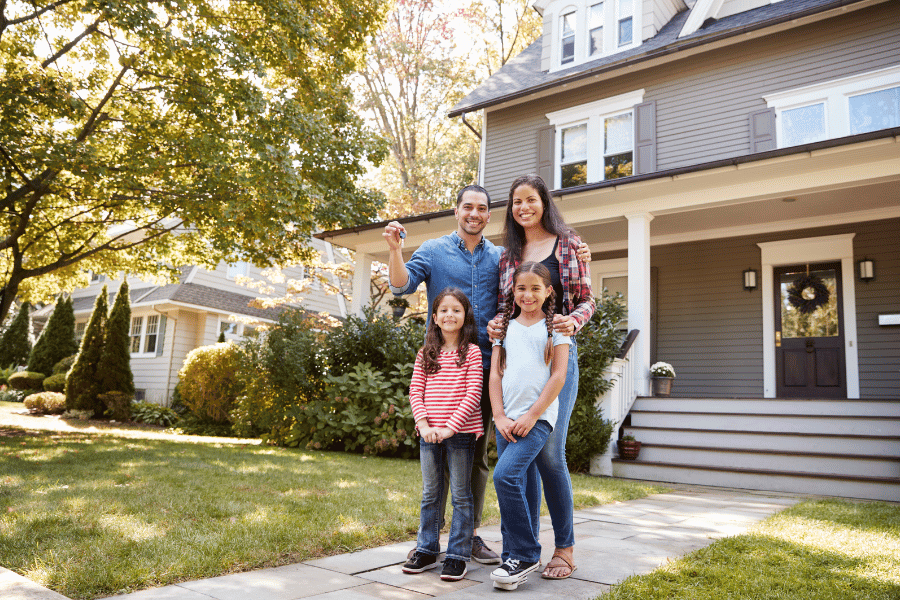
Methodology
We used information and data from several different sources, as well as our own data, to determine everything you need to know about the top home safety tips. Most of the data was sourced from the following sources:
- HUD
- The National Institutes of Health
- Johns Hopkins Medicine
- American Red Cross
- Ready Gov.
FAQs: Home Safety Tips
Here are some commonly asked questions about the best home safety tips.
What are examples of home safety?
Locking up any chemicals in an area that cannot be accessed by children, using latches to keep heavy items or furniture from tipping to prevent accidental injury, and keeping medication out of reach of children are all examples of home safety.
What is basic home safety?
Installing smoke detectors, making sure the home is numbered and visible from the street, and keeping the house free of clutter are all examples of basic home safety.
What is considered a health hazard in a home?
Mold, pests, toxic materials, poisonous gases, and elevated levels of radon are all considered health hazards in homes.
What are some safety rules when you are home alone?
No matter your age or abilities, it is vital to stay safe when you are home alone or living alone. According to the American Red Cross, you should never open the door to strangers, never tell someone you don't know that you are home alone, and never open the door to delivery people or service representations.
What is a home safety check?
A home safety check or evaluation is a thorough assessment of potential hazards in and around your home. This includes hazards that could cause injury, fires, floods, or jeopardize your safety in general.
Home Safety Checklist - The Bottom Line
As you can see, there are many important factors in maintaining the health and safety of your home. This article outlines some ways to ensure that you are living in a healthy and safe home.
Whether you are looking to buy a home or already own one, the health and safety of the home you're living in should always be a priority. Keep in mind that home safety goes beyond keeping your home safe from intruders; there are many things to consider inside your home that could harm those inside.
Before you buy your next home in North Carolina, feel free to contact one of our helpful real estate specialists, as they are eager to help you find the perfect home in the safest area. We know that buying a home can be overwhelming, but a real estate agent can walk you through the entire process.

Ryan Fitzgerald
Hi there! Nice to 'meet' you and thanks for visiting our Raleigh Real Estate Blog! My name is Ryan Fitzgerald, and I'm a REALTOR® in Raleigh-Durham, NC, the owner of Raleigh Realty. I work alongside some of the best Realtors in Raleigh. You can find more of my real estate content on Forbes, Wall Street Journal, U.S. News and more. Realtor Magazine named me a top 30 under 30 Realtor in the country (it was a long time ago haha). Any way, that's enough about me. I'd love to learn more about you if you'd like to connect with me on Facebook and Instagram or connect with our team at Raleigh Realty. Looking forward to connecting!
Related Blogs
